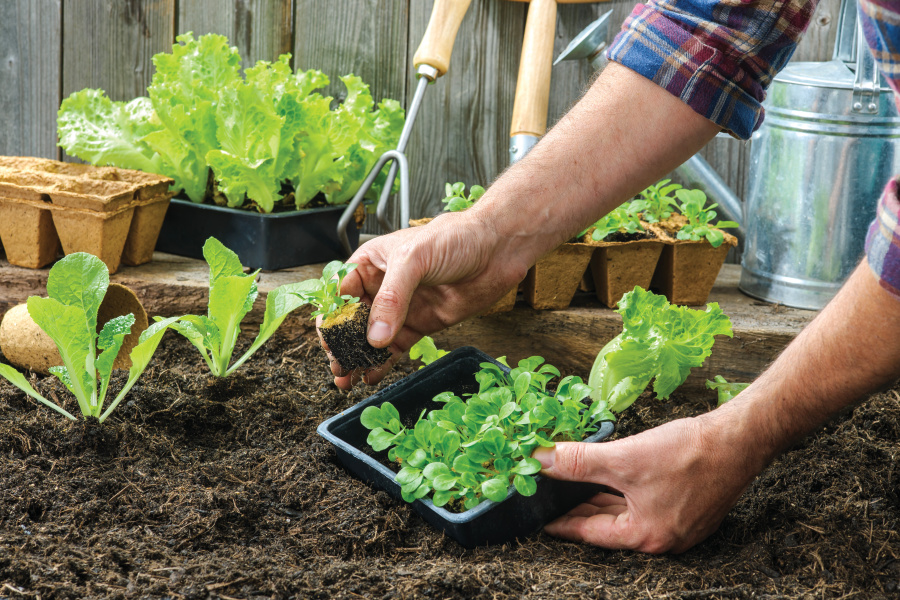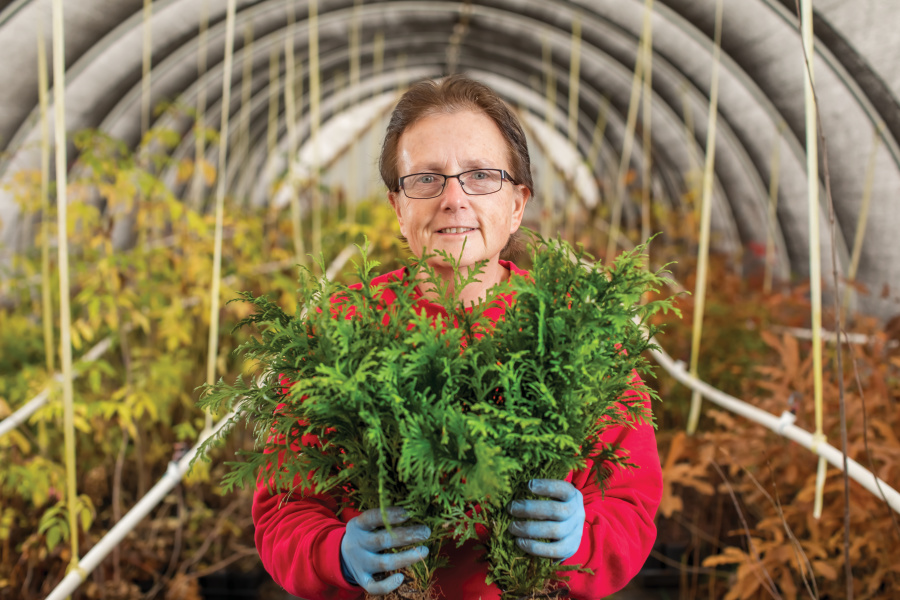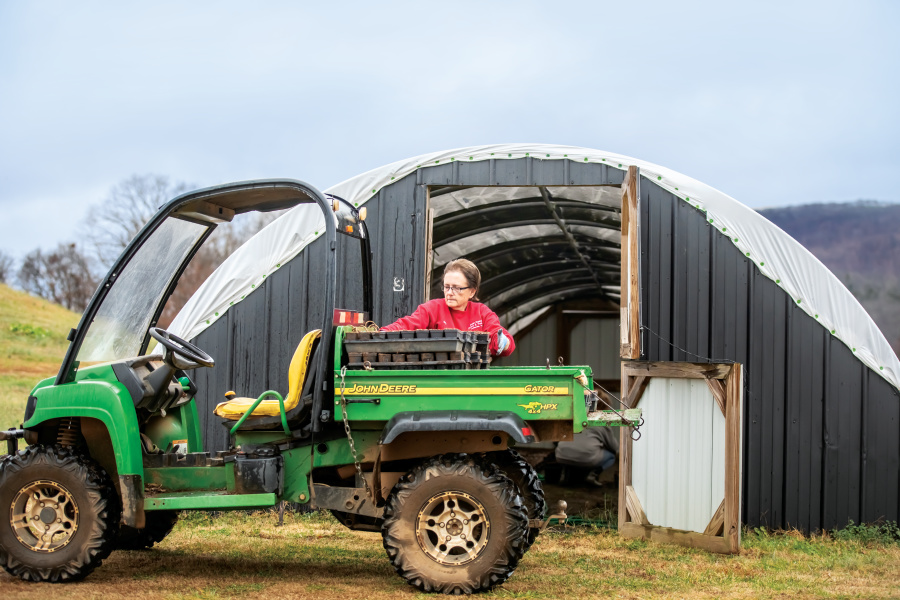Home > Tennessee > Tennessee Crops & Livestock > Pandemic Planting: Nursery and Greenhouse Industry Experienced Welcome Growth
Pandemic Planting: Nursery and Greenhouse Industry Experienced Welcome Growth
In partnership with: Tennessee Department of Agriculture

In a year when a global pandemic forced almost everyone to stay at home, there was an unexpected agricultural trend: People began to garden. A lot! “If there was ever going to be a time for a stay-at-home order, April was actually the perfect month,” says Natalie Bumgarner, University of Tennessee residential and consumer Extension specialist. “It was the silver lining to a crazy, stressful season, and people were turning to gardening to cope and occupy the time.”
Bumgarner says the sudden interest in consumer gardening was caused by several factors associated with COVID-19. “People had more time at home. Plus, they were eating out less often and cooking more for themselves, which created interest in growing their own food,” she says. “At Extension, it gave us the opportunity to engage with new audiences who hadn’t really thought about where their food came from before this.”
See more: Horticulture and Nursery Industry Blooms in Middle Tennessee
To help reach those new audiences, Extension adapted to the times with virtual solutions, including statewide home gardening lessons, live video tours and demos, and shorter clips and videos with tips that people could digest easily over Facebook or YouTube.
“Many of my colleagues and I increased our technical capabilities,” Bumgarner says, “but we also learned that we can adapt and reach younger audiences, urban audiences and more people who wouldn’t have traditionally been interested in gardening.”

Indian Mound Nursery & Produce
While consumers were experimenting with a newfound love of gardening, retailers were feeling the effects. Ginger Wanamaker owns Indian Mound Nursery & Produce in McMinnville, established in mid-2014. Because Indian Mound already sold exclusively online via e-commerce and wholesale, Wanamaker says she didn’t have to change her business plan much to adapt to the impact of COVID. However, she saw a noticeable increase in online traffic and sales. Even nine months into the pandemic, Indian Mound was still experiencing greater internet sales compared to a year ago.
“More people are working from home now, which allows for more time working in the garden,” she says. “I think not only are people choosing to become more self-sufficient in growing their own food, but they’re discovering that gardening provides an outlet from some of the stress and negativity surrounding the current situation.”
Bumgarner agrees. “As I’ve interacted with both new and experienced gardeners, what I’ve heard from them is that getting out into their gardens is a great stress-relief and mental health habit,” she says.

Bain’s Greenhouse & Farms
Bain’s Greenhouse & Farms in Warren County has been family-owned and -operated since 1990 by the Bain family, which consists of Brent Bain and his wife, Mary Crys, their children and Brent’s parents. A more traditional nursery compared to Indian Mound Nursery & Produce, Bain’s sold most of its product at the farmers market in McMinnville and straight to consumers, along with some wholesale.
When the pandemic hit in March, Brent says it was a toss-up as to whether the farmers markets were going to open, especially considering that people were afraid to mingle in public.
“We decided to try something that we had been toying with for a while, which was to start a website to sell products, and we also offered free home delivery to Warren County and surrounding counties,” Brent says. “It really took off, and we ended up selling out of our product in about half the time.”
See more: How Tennessee’s Horticulture Industry Beautifies the State
Bain’s offers a variety of hanging baskets, potted flowers and ornamentals, but Brent says they especially saw an increase in sales of vegetables, echoing Bumgarner and Wanamaker’s sentiment that the trend of people growing their own food is a pleasant result of the pandemic.
“Typically, I sent a lot of vegetables out to wholesale,” he says. “But this year, it all went to retail. I hope it will become a trend. Once people get used to fresh, homegrown vegetables, it becomes a habit.”



